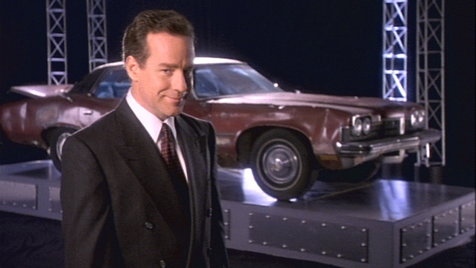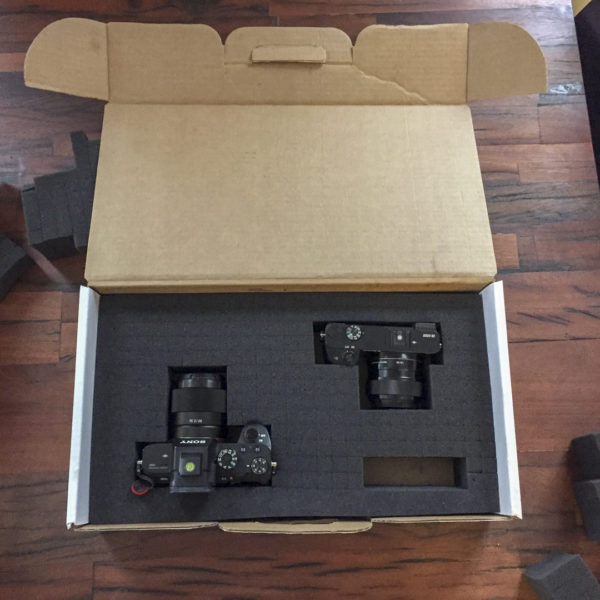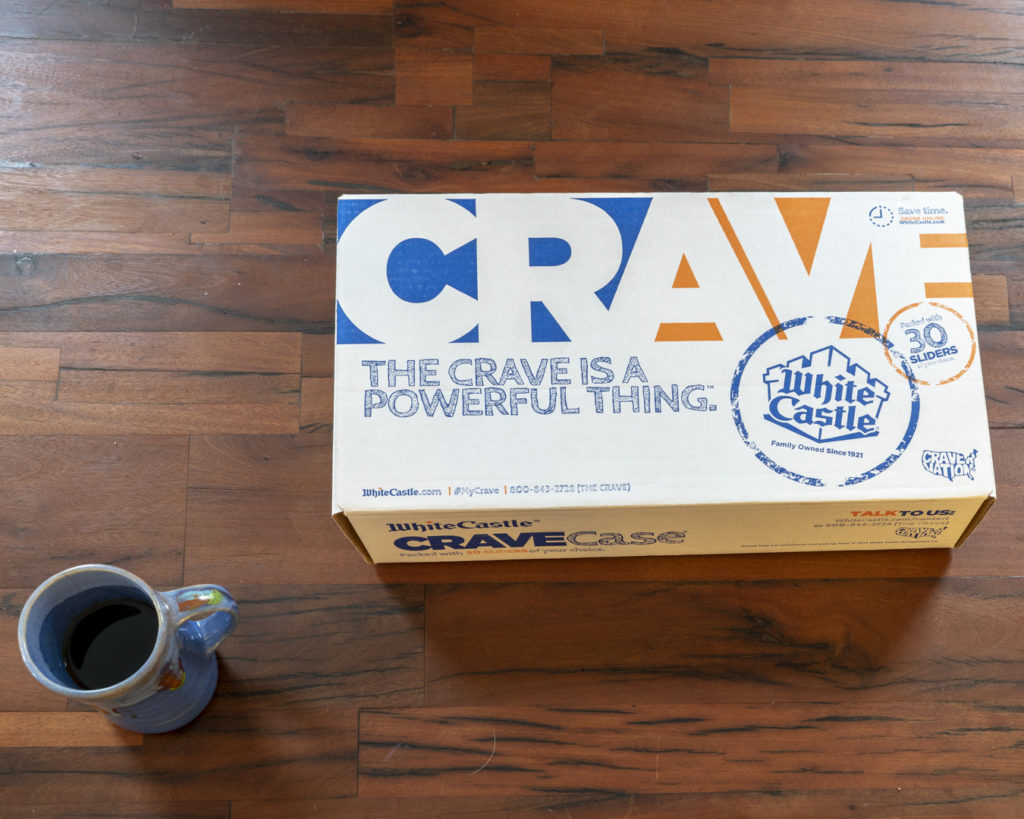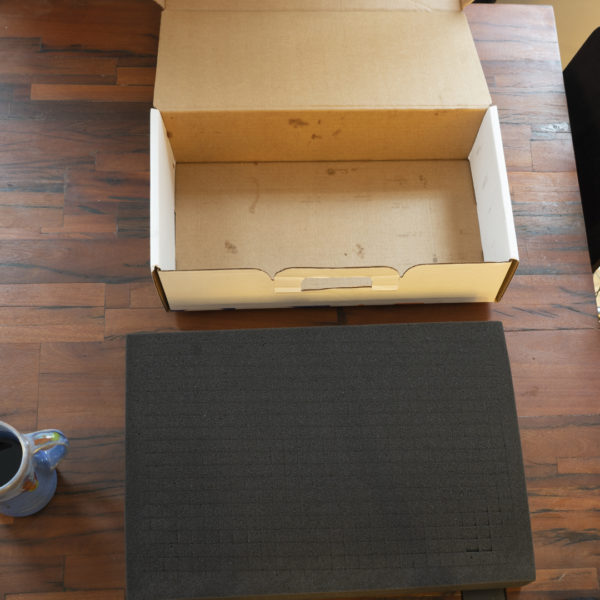In the early 90s, Saturday Night Live aired one of my all-time favorite fake commercials. The ad begins with images of a rusty, rickety, dented 70’s sedan. The legendary Phil Hartman coolly rolls in and begins introducing this incredible and revolutionary vehicle. But then they slowly zoom in on each of the lemon’s imperfections. Barely attached doors. Bumper attached with a coil of bungee cord. Then a marble appears. It traces the contours of the roof before clumsily falling into a rusty hole on the hood. Eventually, the car door opens and reveals an impossibly plush interior. Say hello to the Chameleon XLE, a luxury car with a unique, but effective, security feature: crappy camouflage.

Twenty-five years later, inspired by the Chameleon XLE, I set out to create something that I thought would improve photographers’ lives 100-fold. Something that could also maybe net me a sponsorship with one of my favorite fast-food joints east of the Mississippi: White Castle. My obsession with the oft-maligned restaurant started back in high school and persists to this day. If you’re not familiar with White Castle, they’re known for their coaster-sized “sliders” that slide right in…and, if your stomach isn’t quite accustomed, slide right out. And thanks to their tiny size the restaurant employs unique carrying containers called the Crave Case (30 sliders) and it’s heftier sibling, the Crave Crate (100 sliders).
It all materialized earlier this spring, when my incredible beer league hockey teammates, knowing I was housebound with a toddler and couldn’t join them for beers, instead came to me. With the speed and determination of first responders, they rushed to my apartment with a bottle of scotch and a case of White Castle sliders. While the bottle was emptied in less than an hour, we never finished the sliders. None of my teammates wanted to carry the leftovers home and I couldn’t blame them. So with my heart full of beer league love (and globs of arterial plaque from previous White Castle visits), I graciously accepted the remaining burgers and, most importantly, the Crave Case that it came in. It was at that point the idea, and scotch, hit me: the Camera Crave Case. I could now make the Chameleon XLE of protective camera gear! Having acquired the most essential part, I only needed a couple more ingredients to complete my vision. I didn’t waste time. I drunkenly measured the dimensions of the case that night, hopped on Amazon, and ordered customizable foam sheets.
While I waited for them to arrive, I prepared the case for modification. I scraped off the withered onion bits that had adhered to the interior of the case and shook all the stale crumbs from out of the corners. Two minutes of intense preparation later, the corrugated shell was ready for the foam. Considering that half of the team tore into a couple dozen burgers, the box was in pretty good shape, save for some darkened grease spots here and there. The real challenge was figuring out the optimal layout for my equipment.
Luckily, the custom foam sheets I found (specially made for a different type of case) had similar dimensions to the crave case. All I had to do was push out the pre-scored squares in the shape of the equipment that I wanted to put inside. As much as I wanted to squeeze in slots for a couple of extra lenses, space was more limited than I expected. I also didn’t account for the loss of rigidity if I didn’t leave enough foam between the equipment cutouts. So all things considered, I only had room for my two mirrorless cameras with compact prime lenses attached (Next project: Crave Crate?). The case’s weakest point were the handles. The box was designed for carrying a few pounds of questionable, but incredibly yummy, ground beef patties. In its original state, it isn’t a trustworthy carrier for heavy hunks of metal and glass.





0 Thoughts on GEAR: Crave Camera Case